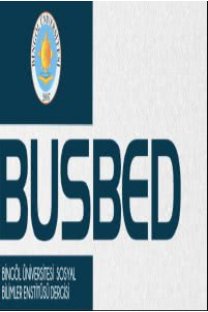ELEŞTİRİ, SEKÜLERİZM VE KÜLTÜR
Bu çalışmada sekülerizm konusu bağlamında sekülerizm ile kültür eleştirisi, edebiyat ve din ilişkisi çok disiplinli bir yaklaşım içinde sorgulanmaktadır. Seküler eleştiri, kapsamlı bir örnek oluşturması açısından Edward Said’in görüşleri esas alınarak tartışılmıştır. Said’e göre sekülerizmin anlamı, dinî dayanışma, ulusal hareketler, profesyonellik ve “organik” ya da sınıfsal entellektüellik uygulamalarına karşı olan muhalif bir eleştirel pratiktir. Onun ifadelerini ve genel yaklaşımlarını ifade etmek gerekirse, metinlerin dünyevi olduğu, bir dereceye kadar olaylardan oluştuğu, inkâr ettikleri zaman bile, yine de sosyal dünyanın, insan hayatının ve elbette içinde bulundukları tarihi anların bir parçası olduklarını ve yorumlandıklarını ifade etmektedir. Günümüzde, sekülerizmin dinden tamamen ayrı olmadığı ve dinin zıddı olmadığı düşüncesi gittikçe daha fazla yayılıyor. Buna göre tarih, her ne kadar insanların eseri ise de, Tanrıya bağlı, ona inanan, onu seven ve ondan korkan insanların eseridir. İnsanların maddi eserlerinin ardındaki motivasyonun kaynağı olan din göz ardı edilerek bir sonuca varmak olası değildir. Ayrıca kültür ve edebiyatın seküler ve dini boyutları da makalede ele alınan konular arasındadır. Aynı şekilde, sekülerizmin salt bir dini ve dünyevi ayrımından ibaret olmadığı, sekülerizmin normatif bir karakterde olduğu tartışmasına yer verilmektedir
CRITICISM, SECULARISM AND CULTURE
In this study, in the context of secularism, the relationship between secularism and culture criticism, literature and religion is questioned in a multidisciplinary approach. Secular criticism was discussed in the light of Edward Said’s views in terms of creating a comprehensive example. The meaning of Said’s secularism is an oppositional critical practice that is opposed to religious solidarity, national movements, professionalism and “organic” or class intellectualism. As a result of his statements and general approaches, the texts are worldly, to some extent incidents, even when they deny it, yet the social world is a part of human life and of course the historical moments in which they exist. Nowadays the idea that secularism is not completely separated from religion and is not the opposite of religion is spreading more and more. History, however, is the work of people, but people who believe in him, who love him, who love him and who fear him. It is not possible to come to a conclusion by ignoring the religion that is the source of the motivation behind the material works of the people. In addition, the secular and religious dimensions of culture and literature are among the topics discussed. Similarly, discussed that secularism is not merely a religious and secular separation, and that secularism has a normative character
___
- ANIDJAR, G. (2006), Secularism, Critical Inquiry, 33(1), 52-77.
- MATHEW, A. (1935), Culture and Anarchy, The University Press, Cambridge.
- ASAD, T., BROWN, W., BUTLER, J., & MAHMOOD: (2013), Is critique secular?: blasphemy, injury, and free speech, Oxford University Press.
- ASAD, T. (2003), Formations of the secular: Christianity, Islam, modernity. Stanford University Press.
- AUERBACH, E. (2003) [1953], Mimesis, trans. Willard R. Trask. Princeton: Princeton Uni-versity Press, 7, 17.
- BERGER, P. L. (1967), Elements of a Sociological Theory of Religion, A Doubleday Anchor Book, New York.
- BERGER, P. L. (1967), The sacred canopy. In Sociology of Religion (pp. 21-26), Routledge.
- BLUMENBERG, H. (1985), The Legitimacy of the Modern Age, Mit Press.
- DURKHEIM, E. (1912), 1995, The elementary forms of religious life, Karen Fields (trans.)
- ELIOT, T. S. (1949), Notes towards the Definition of Culture, New York:Harcourt, Brace.
- ELLMANN, R. (Ed.). (1960), Edwardians and Late Victorians, Columbia University Press.
- ERŞEN, M. (2006), Entelektüel Laik mi Olmalıdır? Doğu Batı Dergisi, 36, 211-239
- GAUCHET, M. (1997), The disenchantment of the world: A political history of religion, Prin-ceton University Press.
- HABERMAS, J. (1987), The philosophical discourse of modernity. Trans. Frederick Lawrence, Cambridge, MA: Harvard University Press
- HABERMAS, J. (2014), Religion and rationality: Essays on reason, God and modernity, John Wiley & Sons.
- HART, W. D. (2000), Edward Said and the religious effects of culture, UK: Cambridge Uni-versity Press.
- HEIDEGGER, M. (1969), The principle of identity, Identity and difference, 21-41.
- KERMODE, F. (Ed.). (1975), Selected Prose of T.S. Eliot, The USA: Harcourt Brace.
- MAHMOOD: (2013), Religious reason and secular affect: An incommensurable divide?. Is critique secular?: blasphemy, injury, and free speech, Oxford University Press.
- MENAND, L., & SCHWARTZ: (1982), TS Eliot on Durkheim: A New Attribution, Modern Philology, 79(3), 309-315.
- MILLER, J. H. (1965), Poets of reality: six twentieth-century writers, Harvard University Press.
- MILLS, C. W., & Gerth, H. H. (Ed., Trans.). (1946), From Max Weber: Essays in sociology, New York: Oxford University Press
- NORTHROP, F. (1957), Anatomy of Criticism: Four Essays.
- PECORA, V. P. (2006), Secularization and Cultural Criticism: Religion, Nation, and Modernity, University of Chicago Press.
- SAID, E. W. (2003a), Orientalism. Penguin
- SAID, E. W. (2003b), Reflections on exile and other essays, Harvard University Press.
- SAID, E. W. (2012), Representations of the intellectual, London: Vintage.
- SAID, E. W. (1983), The World, The Text, The Critic, Harvard University Press.
- VAN DER VEER, P. (1993), The foreign hand: Orientalist discourse in sociology and commu-nalism, C. A. Breckenridge and P. Van der Veer (Ed.), Orientalism and the postcolonial predicament: Perspectives on South Asia, (p. 39) Philadelphia: University of Pennsylvania Press.
- VISWANATHAN, G. (2010), Said, din ve seküler eleştiri, M.G.Gürsoy ve B. Ertür (Ed.), Bar-barları beklerken (223-224). İstanbul: Metis.
- WEBER, M. (1975), Max Weber: A biography. (H. Zohn, Trans.) New York: John Wiley & Sons.
- ISSN: 1309-6672
- Yayın Aralığı: Yılda 2 Sayı
- Başlangıç: 2011
- Yayıncı: Yusuf Aydoğdu
Sayıdaki Diğer Makaleler
ULUSLARARASI TEDARİKÇİ SEÇİM PROBLEMİNDE BULANIK DEMATEL YÖNTEMİNİN KULLANIMI
OSMANLI DEVLETİ’NDE UYGULANAN ADEM-İ MERKEZİYETÇİ BİR YÖNETİM MODELİ: MİLLET SİSTEMİ
ORTAYA ÇIKIŞINDAN 1960’LARA KADAR TÜRKİYE’DE SOSYOLOJİ’NİN GELİŞİMİ
YAPISAL KIRILMALAR ALTINDA SATIN ALMA GÜCÜ PARİTESİ HİPOTEZİNİN GEÇERLİLİĞİ: AVRASYA ÜLKELERİ ÖRNEĞİ
Hüseyin S. KURTULDU, Derya ALTINTAŞ
KİŞİLİK ÖZELLİKLERİNİN İÇGÜDÜSEL SATIN ALMA DAVRANIŞLARINA YANSIMASI
SEVİLAY USLU DİVANOĞLU, TUBA USLU
DUYGU ve GÖRÜŞ MADENCİLİĞİ: SON GELİŞMELER ve 3. HAVALİMANI İÇİN BİR UYGULAMA
TERÖR ÖRGÜTLERİNİN ÖRGÜTSEL DAVRANIŞ MODELLERİ BAĞLAMINDA EL KAİDE ÖRNEĞİ
